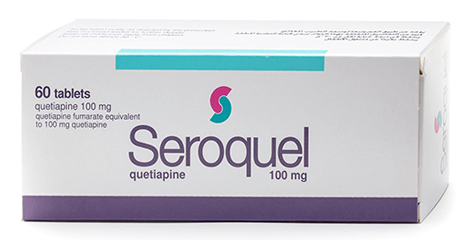Seroquel sedative effect
Seroquel (quetiapine) is an atypical antipsychotic medication commonly prescribed to treat schizophrenia, bipolar disorder, and major depressive disorder. Its effects include modulating levels of dopamine and serotonin in the brain, leading to improvements in mood and reducing symptoms such as hallucinations and delusions. However, Seroquel is also associated with side effects such as weight gain, dizziness, sedation, and increased risk of diabetes and cardiovascular events. like all medications, it should be used under the supervision of a qualified healthcare professional.
| Drug Name: | Seroquel (Generic Quetiapine) |
| Tablet Strength: | 25mg, 50mg, 100mg, 200mg, 300mg |
| Best Price: | From $0.61 Per Pill |
| Where to Buy Online? | OnlinePharmacy |

How does Seroquel affect brain chemicals?
Seroquel, also known as quetiapine, works by blocking the action of certain neurotransmitters (chemical messengers) in the brain, specifically dopamine and serotonin. This leads to a decrease in the activity of these neurotransmitters in certain parts of the brain which are associated with psychotic symptoms such as hallucinations, delusions, and disordered thinking. Additionally, Seroquel also blocks the action of histamine, muscarinic and alpha-adrenergic receptors in the brain, which can lead to sedation, drowsiness, and a calming effect. Overall, Seroquel affects brain chemicals by altering the balance of certain neurotransmitters, resulting in a reduction in certain symptoms associated with mental illness.
How long does Seroquel work and how does the effect appear?
The duration of its effects can vary depending on the dosage, severity of the condition being treated, and individual responses. Generally, the effects of the medication can last between 24-36 hours after a single dose. It can take a few weeks for the full therapeutic effect of the medication to appear, and the dosage may need to be adjusted during this time. The medication works by balancing dopamine and serotonin levels in the brain, which can improve symptoms of psychosis, mood swings, and anxiety. The specific effects of Seroquel can appear gradually, with noticeable improvements in symptoms over several days or weeks. It is important to follow the instructions of a healthcare provider when taking Seroquel.
Is Seroquel completely free of side effects?
Seroquel is not completely free of side effects. It can cause common side effects such as dizziness, drowsiness, weight gain, dry mouth, and headaches. It may also cause more serious side effects including tardive dyskinesia (involuntary movements), neuroleptic malignant syndrome (a potentially life-threatening reaction), and increased risk of suicidal thoughts and behaviors in children and young adults. In rare cases, Seroquel may cause more serious side effects such as tardive dyskinesia, a movement disorder characterized by uncontrollable muscle movements, or neuroleptic malignant syndrome, a potentially life-threatening condition that can cause muscle rigidity, fever, and seizures. Patients should always discuss potential side effects and risks with their doctor before taking any medication.
Is there an off-label use of Seroquel?
Seroquel is also sometimes used off-label for other conditions such as anxiety and insomnia. Seroquel is generally prescribed for adults aged 18 and older, but may be used in children and adolescents in certain cases. As with any medication, it is important to consult with a healthcare provider about whether Seroquel is a suitable treatment option and to carefully follow dosage instructions.
